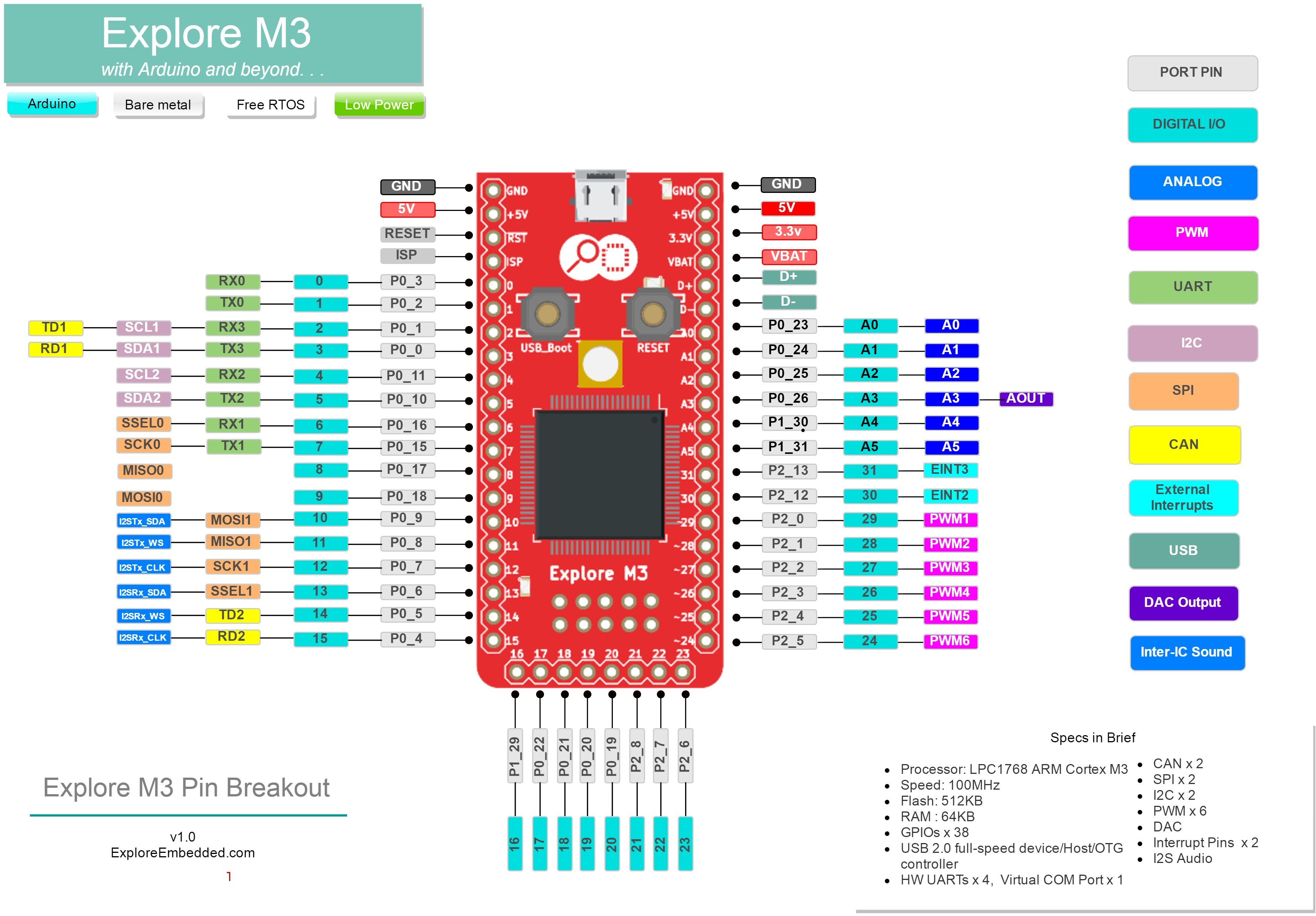Explore M3 Introduction
Explore M3 is a feature rich ARM Cortex M3 development board. It can help you prototype ideas faster with Arduino/mbed and take them be beyond with bare metal programming, RTOS support and lower power modes if need be.
Contents
Features
- Processor: LPC1768 ARM Cortex M3
- Speed: 100MHz
- Flash: 512KB
- RAM : 64KB
- GPIOs x 38
- USB 2.0 full-speed device/Host/OTG controller
- Hardware UARTs x 4, Virtual COM Port x 1
- CAN x 2
- SPI x 2
- I2C x 2
- PWM x 6
- ADC x 6
- DAC
- Interrupt Pins x 2
- I2S Audio
What Explore M3 Stands for?
- One board to evaluate on all popular platforms: Arduino, mbed or bare-metal.
- Supports Arduino IDE/mbed for quick prototyping.
- Light weight ‘C’ libraries for transitioning from Arduino C++ to tool chains like Keil, ARM GCC, Co-IDE etc
- Support for FreeRTOS with numerous examples demonstrating the usefulness and features of RTOS.
- Libraries to support low power modes : Sleep, Deep-sleep, Power-down, and Deep power-down.
- Numerous tutorials showing the easy of use with the platforms and performance gains by programming the bare metal. The list of tutorials below will be linked as we go along.
What it does NOT Stand for?
- First Introduction to Arduino/mbed: Explore M3 is not trying to replace introductory boards of respective platforms. i.e. Arduino Uno R3 for Arduino and mbed LPC1768. They both do and an excellent job of getting beginners on-board and we would also recommend them for starters.
- An Arduino/mbed killer: Over the course of last several years, we have seen numerous board trying to be Arduino/mbed killers. This could be by targeting lower price, better specs or fancy new feature. Although this is not all that bad, the goal of Explore M3 is not that. Explore M3 is an genuine attempt to help people quickly prototype their ideas using standard platforms and take them to the next level if need be.
- Yet Another Arduino Board (YAAB): Explore M3 is not just a different form factor board for which Arduino support already exists. You can think of several Atmega328p boards, or more recent boards with SAM D21 microcontrollers. It is neither trying to be loyal with with a particular manufacturer in order to be more transparent and open. The goal is to bring true diversity to the platform. There have been some good attempts like the Maple in the past or Teensy more recently. Arduino as a platform is growing more transparent and it now allows third party boards to be included in more easily than in the past.
- Cheap Replacement: The pricing (~$15) for early backers , may suggest so. However this is result of some hardware design choices and not because of selling below manufacturing costs. The retail price will definitely be a little higher to support further development and make the product sustainable.
References and Inspiration
- Maple by Leaflabs: Although the Maple boards are no longer sold, the open source projects we are great source of reference and learning for this project.

